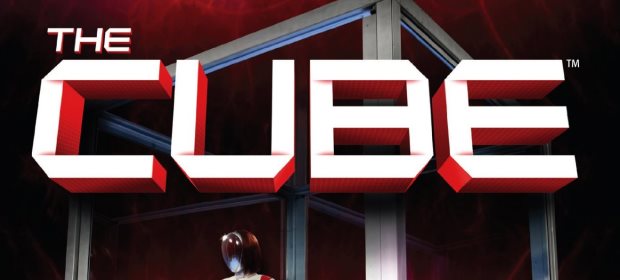Whenever a gimmicky quiz show breaks through into the wider public consciousness and becomes a phenomenon, those who license it decide that rather than rest upon the piles of cash their successful format has given them, it would be a great idea to come up with tie-ins. Even as a kid I was savvy enough to realise that the Blockbusters board game I got for Christmas one year wasn’t a patch on watching the latest wacky student ask Bob Holness for a “P”.
In video game form, telly tie-ins are equally idiotic, unless they take place on a pub quiz machine. The reason why is that nobody wants to invest themselves in a game of this type unless there is a chance of being rewarded. Anyone who has played the soul destroying Who Wants To Be A Millionaire home titles in any form will know what I mean. If you reach the million quid, you may feel like a bit of a smart-arse, but the big winner is Tarrant and his minions who you paid to play such turgid crap.
 The Cube is the latest in a long line of successful afternoon gameshows that has managed to gain a market share of a viewing audience split between those yearning for a more innocent time (word to my homie Henry Kelly and his excellent Going For Gold) and those looking for something to fill the yawning time gap between Jeremy Kyle and Emmerdale. Pitching itself as the ultimate evolution of the skills ‘n’ physical tomfoolery of a Krypton Factor or a Crystal Maze, the Cube is watchable stuff, and easily the most fun you can have involving Phil Schofield and a four-metre-odd square perspex box. In the show, people win big money by completing genuinely enthralling mini-games, all held together by the excellently authoritative narrator, underrated character actor Colin McFarlane.
The Cube is the latest in a long line of successful afternoon gameshows that has managed to gain a market share of a viewing audience split between those yearning for a more innocent time (word to my homie Henry Kelly and his excellent Going For Gold) and those looking for something to fill the yawning time gap between Jeremy Kyle and Emmerdale. Pitching itself as the ultimate evolution of the skills ‘n’ physical tomfoolery of a Krypton Factor or a Crystal Maze, the Cube is watchable stuff, and easily the most fun you can have involving Phil Schofield and a four-metre-odd square perspex box. In the show, people win big money by completing genuinely enthralling mini-games, all held together by the excellently authoritative narrator, underrated character actor Colin McFarlane.
The Cube for 3DS is the latest in a long line of terrible video games based upon game shows. You get an accurate representation of the no-frills set, the same killer, threatening-sounding voice-over, and then gameplay that represents the worst that the medium has to offer. Bordering on offensive, in fact. On TV, tasks such as throwing a ball into a bucket from a spinning start, or stopping an imaginary blue line in a designated end-zone within the Cube require skill and generate tension. On the 3DS screen, all you have to do is press a button, or swipe the screen, yet there is no instruction on how you should carry out this motion.
 One game which involves pinging a red ball into a cup is the epitome of frustration, until you realise that it requires a ridiculous amount of speed and force, almost taking your finger completely over the edge of the lower screen to achieve the correct velocity. Other games involve stopping a timer at the correct moment, counting things, hitting pillars with balls, and nearly all of them involve just one motion each. Some of them are frustrating because of the lack of tutorial – all of the games are introduced by FMV footage of scenes from the show – so you will actually find some of them will eke an extra few minutes as you repeatedly lose all of your lives until the point you work out just how to slide your digit up or down the lower clamshell.
One game which involves pinging a red ball into a cup is the epitome of frustration, until you realise that it requires a ridiculous amount of speed and force, almost taking your finger completely over the edge of the lower screen to achieve the correct velocity. Other games involve stopping a timer at the correct moment, counting things, hitting pillars with balls, and nearly all of them involve just one motion each. Some of them are frustrating because of the lack of tutorial – all of the games are introduced by FMV footage of scenes from the show – so you will actually find some of them will eke an extra few minutes as you repeatedly lose all of your lives until the point you work out just how to slide your digit up or down the lower clamshell.
VERDICT: Inside the real Cube, with money on the line and a studio audience enjoying the tension, the simplistic games work brilliantly. When you’re sitting on your own with a handheld games console that has been home to some of the finest video games of the past year, the level of challenge here is incredibly poor. You ask yourself – why would anyone want to play such a nonentity of a game, when there are so many better alternatives?
Even a casual-assed gaming relative would sniff at this one over the Xmas turkey and demand you stick the Wii back on. As poor a cash in as this reviewer has ever had the misfortune to play, it should come as no surprise that the classy Schofield hasn’t got his trademark silver locks anywhere near this one.

TERRIBLE. A step up from “diabolical”, but a minor one. A 2/10 will have at best one or two positive features that, alongside its catalogue of disappointments, just aren’t enough to render it playable.
Review code provided by publisher.






